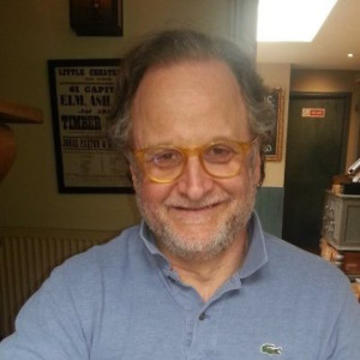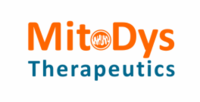Steven Zimmer, CEO of MitoDys Therapeutics

Steven is the CEO of a start-up called MitoDys Therapeutics, a drug discovery company focused on identifying drugs that can be repositioned as proprietary therapeutic modalities for select neurodegenerative disorders. The drug discovery platform involves a combination of chemogenomic translation of gene expression data and chemoinformatic processing of resulting molecules to arrive at commercially relevant, repositionable drugs for therapies in Parkinson’s disease, MND, MSA and Leukodystrophies.
Steven is a trained biochemist/molecular biologist who had a long career on Wall Street and in the City of London as an analyst, investment banker and portfolio manager. He is currently a visiting researcher at the SGC helping to identify/mentor spinout opportunities using the probes that it has developed.
I have an undergraduate degree in Biochemistry and a graduate degree in Molecular and Developmental biology. Drug discovery is a lengthy process that is expensive and is linked to very high attrition rates particularly with respect to complex multi-factorial diseases; I have been interested for some time in finding ways of de-risking the discovery process and reducing its rate of failure. The advent of informatics-driven tools and our ability to develop human disease models in a dish has, in my view, significantly enhanced the prospects of finding a better way to identify safe and effective drugs that will make it through clinical testing so that patients can benefit from these. The focus on neurodegenerative diseases was driven by the fact that with the aging of the population and the resulting exponential growth in these (expected to double through 2050), the multi-factorial, complex nature of these disease are a particularly hard nut to crack. I also have a personal stake in this as my sister has Parkinson’s disease and a number of members of my family has suffered from Alzheimer’s disease.

For me entrepreneurship is about passion and tenacity. It is about identifying a market demand and fulfilling it. It is about identifying the problem/barrier to satisfy this demand and finding best way to solve/overcome it. Entrepreneurship is also about people and the ability to harness their talents and manage the process of bringing an idea to fruition. The financial rewards that derive from this are intimately tied in to the success of making it happen, getting it financed and delivering the product or service to market.
I had wanted for some time to apply the skills that I had acquired over a long career at the interface of finance, market analysis and science to address a significant disease problem in a truly novel way. My current endeavour is an embodiment of that wish.
Passion, tenacity, drive, ambition along with humility, flexibility, lateral thinking and more passion and tenacity!! Knowing your limitations and making sure to allow the people that complement those limitations to step in and take care of business when required. Without these qualities, it is, in my view, impossible to be a successful entrepreneur.
The freedom to pursue one’s dream, make it happen, deliver a benefit to society and reap the rewards of one’s labour; what could be more satisfying!
I have been inspired by many companies and individuals who have inspired me as I have been around since the inception of the Biotech revolution. I have learned from what the individuals who created companies like Genentech, Biogen, Genzyme and many others and have carried these lessons into what I am doing today. I have also learned much from the failures of companies as these are sometimes even more important than the successes!
I have had and have discussed many times over. How did you formulate your idea? How did you implement it? How did you persuade investors to back you? How did you manage the process and when you encountered failure/setbacks, how did you overcome these and if required, change direction?
The first investor money we raised for our company!
Underestimating the ability to finance a start-up in an area of high innovation where Proof of Concept was lacking. Choosing people with the right skills but the wrong attitude and overestimating the skills of individuals who inevitably disappoint!
Oxfordshire should be an excellent place to be an entrepreneur but it has in the past (and to a degree continues to), lacked good local funding for start-up companies. This has improved of late but there is still a paucity of understanding of what it takes to be an entrepreneur here. Also certain organizations tend to get in the way of progress rather than to be there to help it along!
I would mentor them and work with them on their idea to make sure that is not a non-starter in the first place and see how to make it the best it can be. I would probably start out with the OBN (Oxford BioScience Network) and today would probably send them to the Oxford Biotech group organised by Mina Bekheet and other students. There is also an almost monthly entrepreneur’s drink at the Jam Factory and there are some good conferences worth attending such as On Helix, Biotrinity and others in the UK.
Before anything, make sure that whatever product of service you are thinking of developing has a market where there is demand. That this market is accessible in a way that does not throw up too many barriers to entry or that there are companies you can partner with or license to that will do the market access thing! It goes without saying the product of service need to be proprietary or significantly differentiated form whatever else is out there and that a significant amount of knowhow is involved in its development. Know when to change directions and know when the game is over. Finally, don’t get wrapped up in ego…ego is very useful but does have limitations. Ego can easily kill a venture.
Share this
More news



